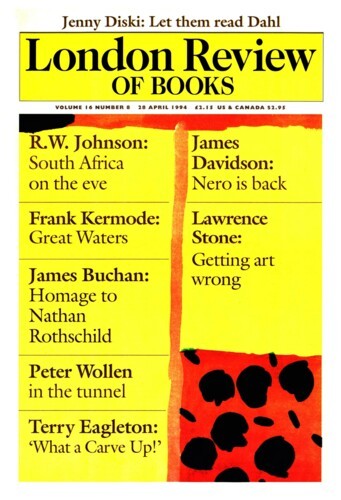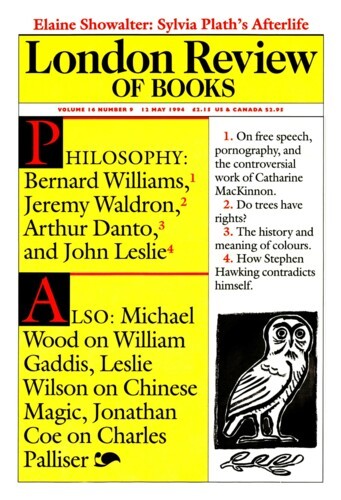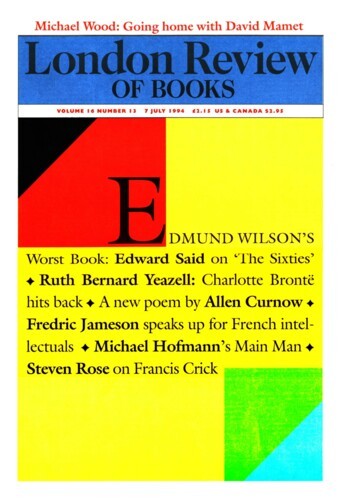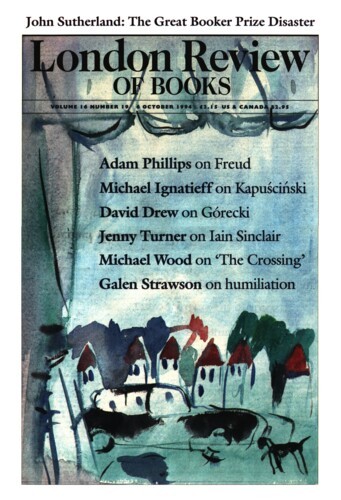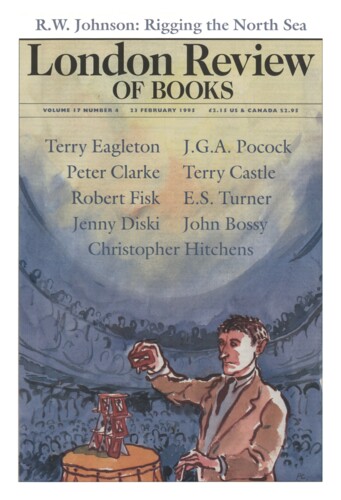Theydunnit
Terry Eagleton, 28 April 1994
Gothic horror tale, detective mystery, autobiography, political history: Jonathan Coe’s appealingly ambitious new novel involves a promiscuous intermingling of literary genres, as a potted social history of Thatcherism is tucked inside some meta-textual high jinks. An anatomy of the appalling Winshaw family, Thatcherite predators of one ilk or another, provides the lens for a scabrous critique of Tory Britain; but at the source of the family’s history lies a mysterious murder, so that the text simultaneously yields us a camped-up whodunnit. Flamboyant crimes and scandalous secrets marked the Thatcher epoch, just as they do the life of the novel’s voyeuristic, emotionally autistic narrator Michael Owen, whose finger hovers constantly by the freeze-frame button as he drools over videos. The Thatcherite Eighties were all about emotionally retarded men excitedly glued to screens, manipulating signs to conjure fortunes into being as arbitrarily as the literary artist (Owen is a minor novelist) dreams up character and event.
